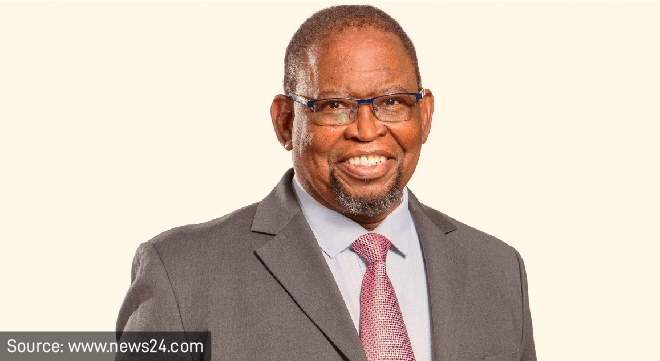The funding strategy for National Health Insurance (NHI) will unfold gradually, reflecting the government’s cautious approach amid significant fiscal constraints. This was the message from Minister of Finance Enoch Godongwana in response to questions posed in the National Assembly.
Earlier this month, ActionSA MP Alan Beesley asked the minister for details of National Treasury’s plans to secure the estimated additional R628 billion a year required to implement NHI. Beesley also wanted to know whether:
- Treasury believes the current fiscal framework can accommodate such significant funding without undermining other critical national priorities.
- Treasury is considering alternative funding approaches, such as using Public Investment Corporation (PIC) funds and implementing budget reallocations to prioritise NHI funding.
- Any new revenue streams, such as increased taxation and/or targeted levies, will be proposed to finance NHI.
Godongwana said that baseline allocations already exist for preparatory NHI activities through the direct and indirect NHI grants, as well as funding allocated to the National Department of Health. These allocations, he said, have historically been underspent, alleviating immediate financial pressures.
Over the 2025 Medium-Term Expenditure Framework, an estimated R7.3bn has been allocated for health system and facility revitalisation under the indirect NHI grant. These funds are expected to support ongoing preparatory activities, although no significant increases were included in the 2024 Medium-Term Budget Policy Statement.
Additionally, Godongwana said full implementation of NHI remains a long-term objective.
“Practically and more realistically, it may take some years before we reach full implementation because progress will strictly be contingent on the fiscal situation, and a lot of progress is still required in developing strategic purchasing mechanisms.
“What is more likely is the redirection of existing funds (for example, conditional grants) and a gradual slow increase in funding, depending on national affordability. Complex systems and mechanisms would first need to be developed within the [NHI] Fund to ensure smooth transition, which will likely take several years,” he said.
Notably, the NHI Act has not yet been promulgated, and the associated regulations have not been released. Listing the NHI Fund as a Schedule 3A public entity, a key milestone, is expected to take about two years.
Addressing the estimated cost of full implementation, the minister said various cost projections have been made. For instance, the 2010 Green Paper estimated a funding shortfall of R74bn to R106bn in real 2010 terms. More recent work from 2019 suggested that limited start-up interventions might require R55bn by 2030.
He said the government is already spending R893bn on health over the next three years, reflecting significant existing investments in the health sector. However, he acknowledged that additional funding for NHI would require careful consideration of national affordability and priorities.
PIC funds and new taxes
On the question of whether PIC funds might be utilised to support NHI, Godongwana said these funds – primarily derived from retirement contributions and unemployment insurance funds – are managed independently within the PIC’s legal mandate.
Although the PIC is a major purchaser of government bonds, its investment decisions must align with its fiduciary responsibilities. Discussions between relevant ministers will explore alternatives during the budget process, but the PIC’s role will remain within its defined framework.
Godongwana said no new taxes or levies have been announced to fund NHI at this stage. He explained that the potential need for additional tax measures would be evaluated as the reform progresses. Importantly, any decisions on taxation fall exclusively under the Minister of Finance’s legislative mandate.



